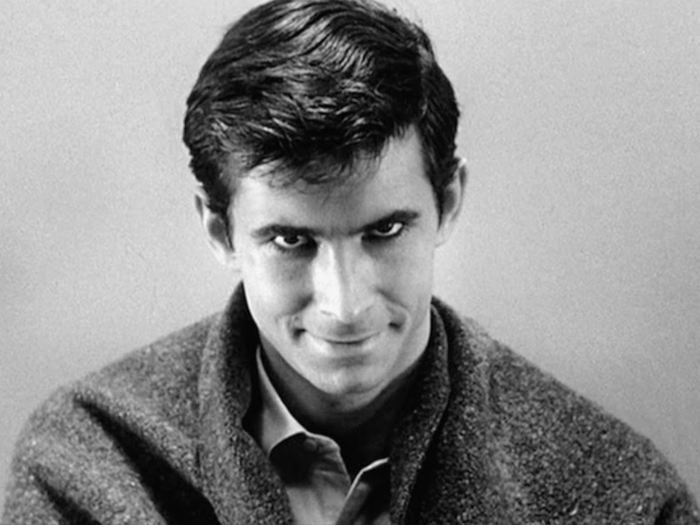- Home
- entertainment
- TV
- 5 things everyone gets wrong about psychopaths - and why you might be one
5 things everyone gets wrong about psychopaths - and why you might be one
1) It's not very clear what a psychopath is.

2) Psychopaths aren't always violent criminals.

Tons of cases of psychopathy go completely unnoticed — perhaps even to the psychopath themselves.
Famously, this happened to neuroscientist James Fallon, who accidentally discovered he was a psychopath while examining images of brain scans.
“I go to the bottom of the stack, and saw this scan that was obviously pathological,” he told Smithsonian Magazine. The image turned out to be his own brain, showing low activity in the areas that are linked to empathy and self-control.
Later, a genetic test confirmed he had all the biological makings of a psychopath (he’s apparently also related to Lizzie Borden, so there’s that). Fallon considers himself a “pro-social” psychopath, meaning he isn’t violent and more or less follows societal rules.
Fallon has said frequently that he believes this is because he experienced a safe and loving childhood.
3) Psychopaths aren't crazy.

Actually, psychopaths are quite sane.
Try this test: If the psychopath in a TV show or movie is shown hearing voices or experiencing other delusions, they're not a psychopath.
Psychopathy is a personality disorder, not a mental disorder. Hallucinations and other signs of mental illness usually portrayed as part of psychopathy are actually severe psychosis, or a loss of one's sense of reality.
That's why Norman Bates of Alfred Hitchcock's "Psycho" isn't actually a psychopath — he thinks he's obeying the wishes of his mother. Not only would a psychopath likely not care much about his mother's directives, he would be firmly in touch with the reality of her death (and probably not care very much about it).
Patrick Bateman might fall into this category too — psychotic instead of psychopathic — depending on your interpretation of events in "American Psycho."
Delusional serial killers like Charles Manson and Son of Sam? Also not psychopathic.
4) And they're not always sadistic.

That's not to say, of course, that there aren't sadistic psychopaths, but psychopaths aren't necessarily sadistic.
Extreme sadism — taking pleasure in others' pain — actually gets its own personality disorder, aptly named sadistic personality disorder.
But sadism and psychopathy are characteristics that can be separated from one another, even in seemingly normal people. Some have suggested that the dark personality triad — narcissism, psychopathy, and Machianvellianism (manipulativeness) — could use the addition of sadism and become a tetrad.
If a psychopath is motivated by sadism, like the infamous Vampire of Dusseldorf, Peter Kurten, then you'll get a sadistic, murdering psychopath.
But take Anton Chigurh, the character played by Javier Bardem in the movie adaptation of "No Country for Old Men." He's a hit man sent to track down a missing satchel of drug money. He kills people (lots and lots of people) to fulfill his purpose, but it's not for pleasure.
If you've ever heard a villain tell the hero, "I'm about to torture you, but I take no pleasure in it," you're familiar with this idea. A full-blown psychopath will use any means, including violence, to get to the end — but that doesn't mean they're a sadist.
5) Psychopathy might be incurable, but it's not untreatable.

A good deal of what goes into making a psychopath is genetic — but, as we see from Fallon's story, that doesn't mean there's nothing anyone can do.
According to a 2012 New York Times article, more and more psychologists are identifying "callous-unemotional" children who might be displaying early signs of psychopathy ranging from out-and-out sadism to small manipulations.
The idea you can diagnose a child with a personality disorder is a contentious one, since kids' brains are still developing, and no one wants to risk sticking a kid with a label like "psychopath" early on.
On the other hand, some researchers hope that spotting these kids early could help them get into treatment. While they may never be "cured" of the biological aspects of antisocial personality disorder, some therapies might effectively teach kids (and adults) how to navigate empathy, morality, and behavior in a prosocial way.
Are you a psychopath?

Maybe.
Experts believe that about 1% of the population shows psychopathic behavior.
There are a ton of tests online, but again, you shouldn't use those, or even the widely used Hare Checklist, to diagnose yourself with antisocial personality disorder outside of a clinical setting.
And hey, if you are a psychopath, there may be some benefits to antisocial traits: Assertiveness, for example, is a great asset in the business world. Not caring what others think of you can be dangerous, but sounds pretty good to those who suffer from the opposite problem of crippling self-doubt.
If you're really curious about the dark side of your personality, this is the best quiz we know of that registers your dark personality traits without pretending it's some kind of online psychologist.
Just remember when you're watching a movie or TV show that claims one of its characters is a "psychopath," that, just like the psychopaths among us, the truth is probably hiding below the surface.
Popular Right Now
Popular Keywords
Advertisement